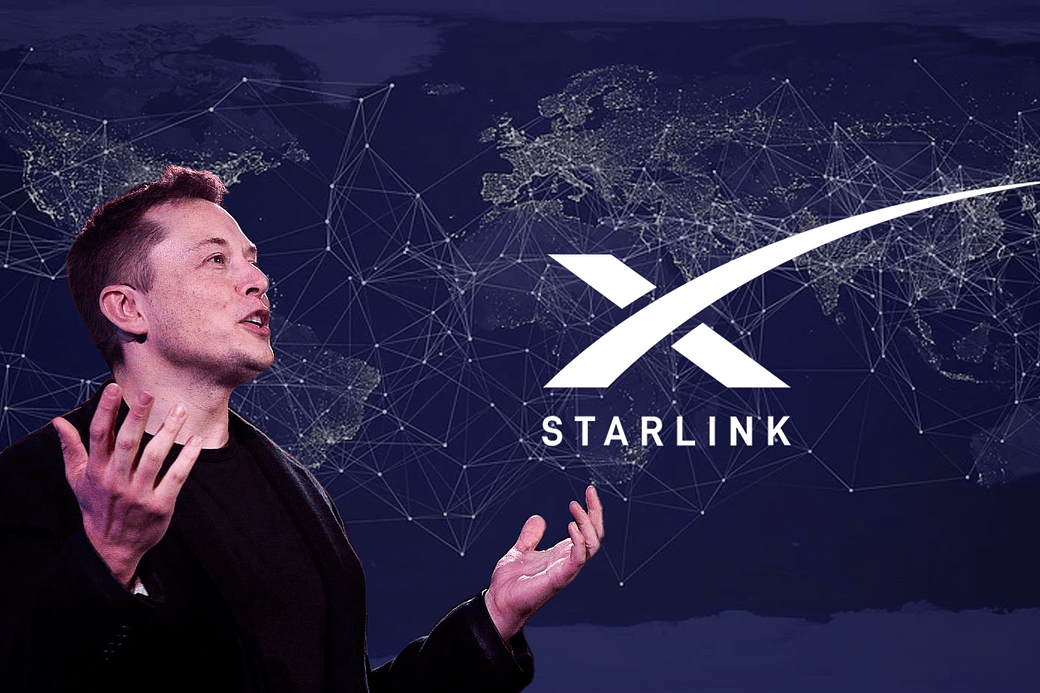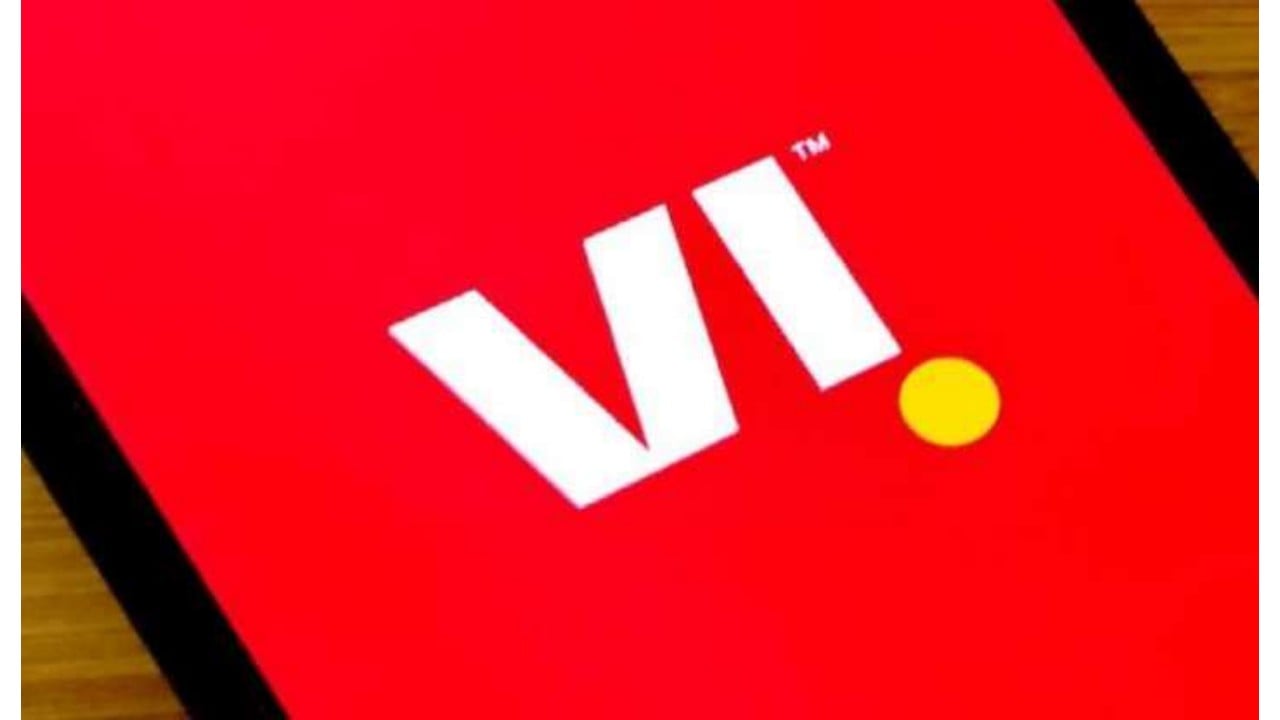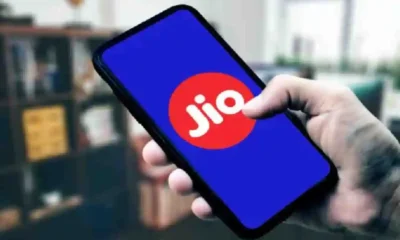[vc_row][vc_column][vc_column_text]With its subscriber base crossing 100 million and their data usage close to that of the US, plus a fresh offer of sharply discounted prices, Mukesh Ambani’s network has disrupted the Indian telecom market. The industry needs to recalibrate and now
By Sujit Bhar
Mukesh Ambani’s Jio is a disruptive network in the Indian Telecom firmament. On February 21, the Reliance Industry chairman, who also heads Jio, revealed three very important figures. First, the network’s subscriber base has now crossed 100 million, a milestone reached in a record time. Secondly, over 100 crore gigabytes of data has already been consumed by its subscribers.
The third was another huge marketing gimmick, regarding Jio prime. Said Ambani: “All customers who subscribed to our service on or before March 31 can enroll in the Jio prime membership for a one-time fee of Rs 99. Prime members will be eligible for all the unlimited benefits availed during the introductory offer for another 12 months till March 31, 2018, by paying a fee of Rs 303 per month.”
The announcement was a big step towards consolidating an even larger subscriber base within a given time-frame. This could change the cost-analysis of all existing telecom network providers and promises to provide connectivity that might be in the region of some developed nations.
The problem, of course, is of assured connectivity, with telecom towers being in short supply for the new network of the largest private corporation in the country. That is something that will need solving. There is another problem brewing, in the quick amalgamation of different networks, gearing up to fight the mega-offensive from Reliance.
Not that Ambani is not aware of all this. Said he: “We will monitor all plans announced by other operators across the country. We will match all these and will provide 25 per cent more data than anyone else. Our solemn promise is to offer better plans at best price.”
The existing scenario
What was the existing scenario in which such a disruptive situation emerged?
According to the Telecom Regulatory Authority of India (TRAI), till January 2017, India “was the world’s second-largest telecommunications market… The deregulation of Foreign Direct Investment (FDI) norms has made the sector one of the fastest growing and a top five employment opportunity generator in the country. The Indian telecom sector is expected to generate four million direct and indirect jobs over the next five years according to estimates by Randstad India”.
The bigger news was about market projections. Says TRAI: “Driven by strong adoption of data consumption on handheld devices, the total mobile services market revenue in India is expected to touch US$ 37 billion in 2017, registering a Compound Annual Growth Rate (CAGR) of 5.2 per cent between 2014 and 2017, according to research firm IDC.”
The forecasts match the Jio offerings. It says: “India is expected to have over 180 million smartphones by 2019, contributing around 13.5 per cent to the global smartphone market.”
That isn’t all. “According to a report by leading research firm Market Research Store, the Indian telecommunication services market will likely grow by 10.3 per cent year-on-year to reach US$ 103.9 billion by 2020,” says the TRAI report.
Accepting the huge market potential, what was the telecom companies’ market share till end of last calendar year?
The following graph (courtesy TRAI), makes it clear.
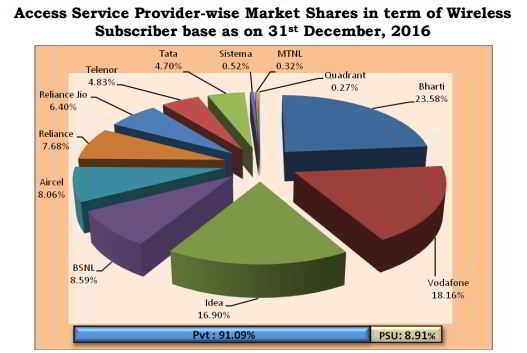
Pie chart on market share
Idea (16.9 %) has now tied up with Vodafone (18.16 %) to form a block (total 35.06 %), while Reliance Infocomm (7.68 %) has tied up with Tata Telecomm (4.7 %) to garner a 12.38 % market. The largest so far is Bharti Airtel at 23.58 percent of market share. Jio has butted into that, starting at just 6.4 percent.
Future market
The overall subscription data (TRAI) makes things clearer.
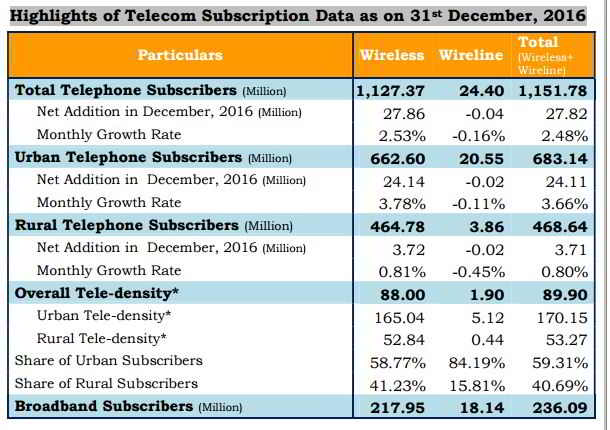
Subscription data table
Jio isn’t just a disruptive force; it has the potential to push open the overall market and force-expand it breadth-wise, incorporating the friendly Narendra Modi government’s digitization drive.
Tomorrow will be another day, not quite like yesterday and certainly way beyond today. This is the accepted leapfrogging method that India has been adopting for a long time in this field, and reaping benefits.
We must remember Mukesh Ambani’s recent comment about H1B restrictions in the US. He had said that this could be blessing in disguise for Indian IT companies, because they would then have time to look back into the domestic market where opportunities abound.
Hugely disruptive moves such as Jio’s are timely interventions. The industry needs to recalibrate.[/vc_column_text][/vc_column][/vc_row]
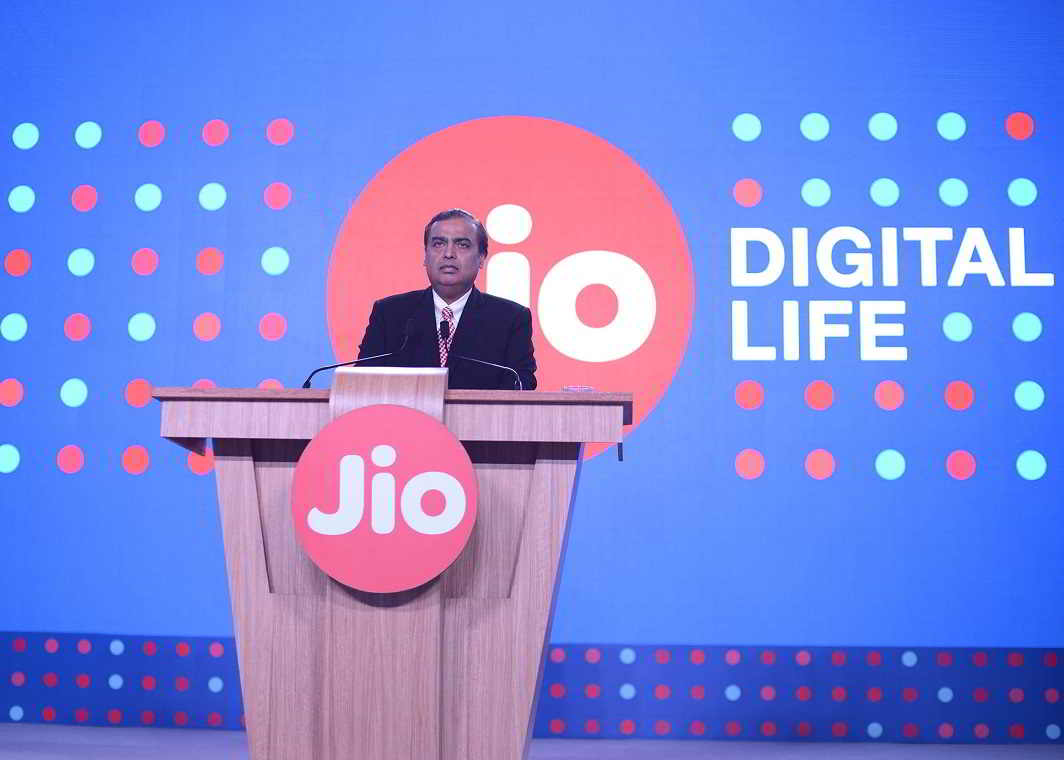

 Latest world news21 hours ago
Latest world news21 hours ago
 Latest world news21 hours ago
Latest world news21 hours ago
 India News21 hours ago
India News21 hours ago
 Latest world news12 hours ago
Latest world news12 hours ago


